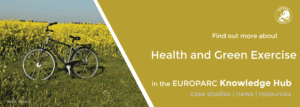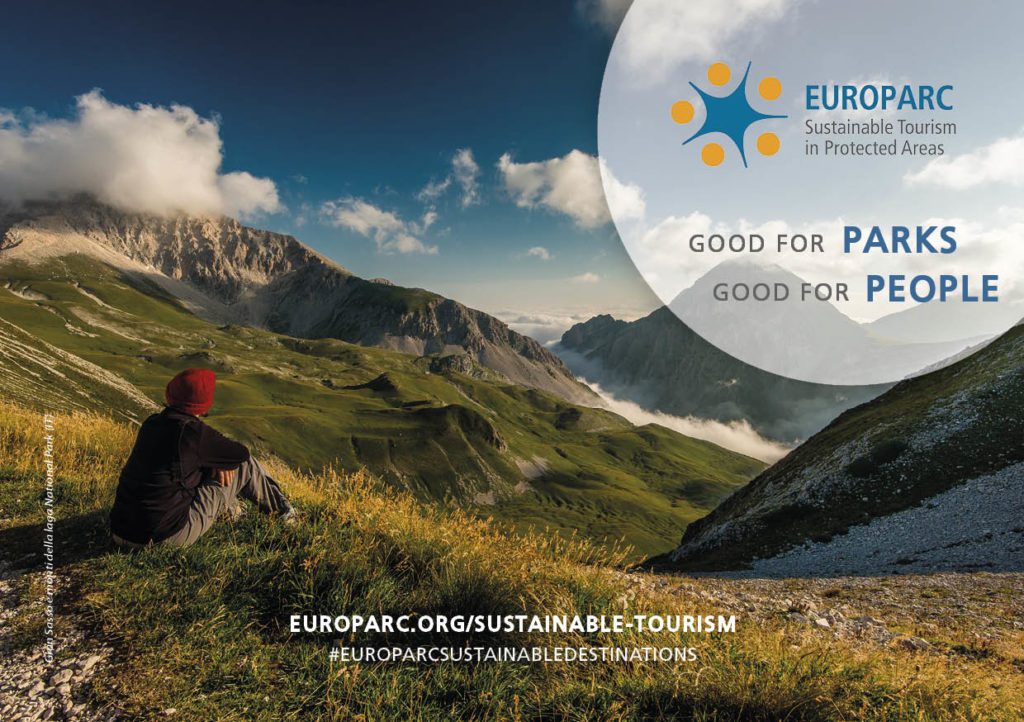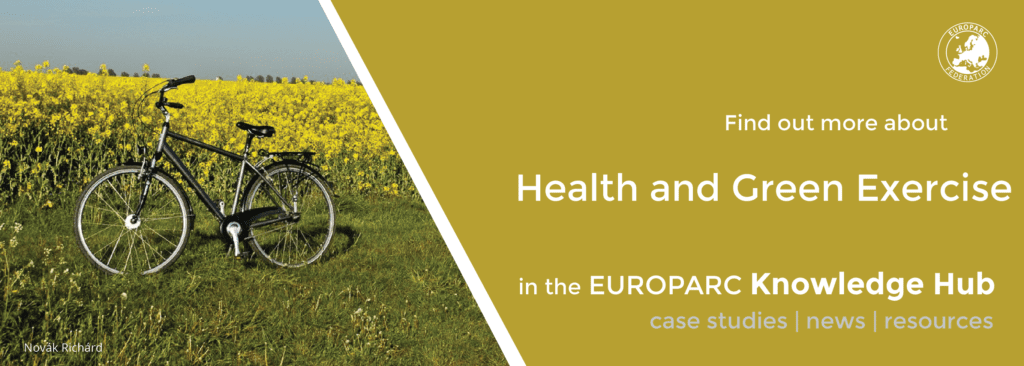Wilderness therapy as mental health treatment: a case study from the UK
Source: Wilderness Foundation UK website
The cost of mental health is rising exponentially across the world, overtaking the cost of heart disease. At the same time, wilderness and biodiversity are declining and we must advocate for their protection through a range of programmes that influence our general behaviours and the decisions of politicians and planners. The Wilderness Foundation UK advocates for the wild by sharing evaluated programmes that demonstrate the impact of wild places, and nature connection, on human mental well-being.
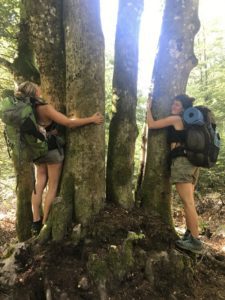
Source: Wilderness Foundation UK website
The Wilderness Foundation UK works with youth experiencing lack of education, employment, drugs and alcohol addictions, domestic violence, trauma, self harm and a range of mental health issues. They suffered with depression, anxiety, anger and violence issues, self harm and potential suicide. Many were in trouble with the police or known to social services.
The Foundation identified that many of their youth had issues relating to trauma in childhood, belonging and identity, and had no connection with wider society that was positive. Many times in their lives they had been rejected and held negative and destructive belief systems and behaviours. They had poor self respect, little respect for others or for nature.
Most had little positive contact with nature and the outdoors, and no interest in wildlife.
Read also the original case study on well-being for people and the planet through wilderness therapy and nature immersion, or another case study from Scotland on health benefits of periurban parks.
Wilderness therapy as a solution
Participants were in need of a structured programme with a strong group process and individual support.
Beneficiaries of wilderness immersions learn to care for the natural world, implementing positive behaviours towards nature such as Leave No Trace ethics, conservation volunteering and advocacy for the protection of wild places and wildlife.
The Wilderness Foundation offers a programme of a minimum of six months, including:
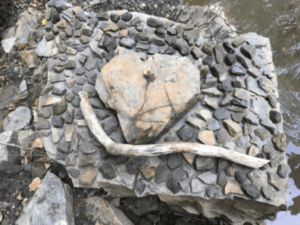
Source: Wilderness Foundation UK website.
- two wilderness therapy trails,
- monthly group work,
- social events,
- volunteering,
- training,
- and weekly mentoring.
All the steps of the programme are researched and the Foundation also provides support for the families and holds community celebrations.
Nature is the main ingredient of the programme with our facilitation and feedback session backing up their experience and embedding new belief systems. Outdoor therapy is key.
The programme established a number of partnerships that are crucial to take it forward. The Foundation works closely with the University of Essex to evaluate the work. A partner guiding company provides the health and safety expertise for the trails and adventure therapy work. Finally, they work with social services, the police, schools, and other charities to support their young clients.
Improved mental health
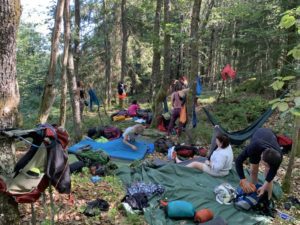
Source: Wilderness Foundation UK website
The project has a high outcome of improved mental health – such as mood, resilience, self efficacy, hopefulness linked to connection to nature. This is consistent through the years of the programme.
On average, 85% of graduates go into further education or employment. Many of the young participants have learned tools and techniques to help themselves into the future when things get hard and report that they still use these sometimes ten years after completing the course.
Nature is the greatest teacher of all and we are simply just working alongside her.
Jo Roberts, Director of the Wilderness Foundation admits that it is sometimes very hard to engage the wider family to match the changes of the young people. “We find that those on drugs or dealing drugs are the hardest to engage for the whole programme. Sometimes building a group ethic is hard before a trail brings everyone together,” explains Ms Roberts.
But most importantly, she remarks that, “by offering kindness and respect, it usually comes back to you ten fold.”
[27 Nov] EUROPARC webinar: nature conservation in a changing climate
Webinar: Nature conservation in a changing climate – Setting the scene
- Wednesday 27th November 2019
- 11:00 am CET
- Register here (it’s open and free 🙂 )
Climate is changing. Shouldn’t nature conservation adapt and rise to the challenge? This webinar series on climate change adaptation and protected area management will help protected area managers answer this question.
In this webinar…
The goal of this first session is to help participants to objectively frame the challenge that climate change adaptation represents for protected area managers.
The webinar will start with an overview of how climate change adaptation is embedded in Europe’s protected areas today. Then, by using the knowledge gained about the evolution of glaciers in the Alps, participants will learn more on what climate change actually means, concretely. To finish, the learnings from migratory birds conservation should help us better understand the challenge that climate change represents for nature conservation professionals.
Program and speakers:
- Nature conservation in a changing climate: setting the scene by Olivier de Sadeleer, EUROPARC Federation (EU)
- Climate change from the perspective of a glaciologist by Jean-Baptiste Bosson, Asters, Conservatoire d’Espaces Naturels Haute-Savoie (FR)
- Migratory birds conservation in a changing climate by Olly Watts, RSPB (UK)

Note that the webinar will offer an opportunity for everyone to interact with the speakers.
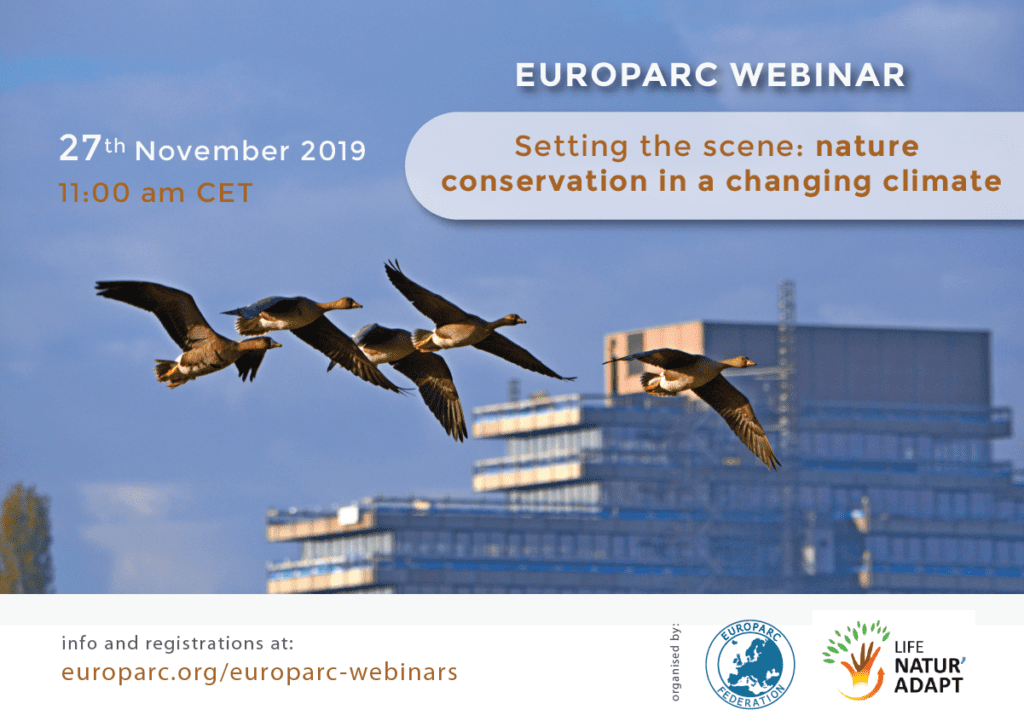
About NaturAdapt
In Europe, Réserves Naturelles de France, EUROPARC and eight partners have joined forces under a LIFE Climate Action project to turn the climate change adaptation challenge into an opportunity to innovate for nature conservation. NaturAdapt aims to initiate a transition towards adaptive management of protected areas while laying the foundation for a dynamic collective learning process.
If you wish to know more about the project, a brief description is available here.
NaturAdapt [LIFE17 CCA/FR/000089] is a 5-year project developed with the enthusiastic support of …

How to join?
Webinars are open, not only to EUROPARC members, but to everyone with an interest in Protected Areas. Participation is free but registration is necessary. Register here.
In this interactive webinar, participants will be able to join in with their own video camera, share examples from their parks and direct their questions to the invited guests.
Previous Webinars
Charter Award Ceremony 2019 – Registrations are open!
The Charter Award Ceremony 2019
We are proud to invite you to the Charter Award Ceremony 2019, our annual high-level event host in Brussels, to recognise the work of Protected Areas towards achieving sustainability in tourism. This year we will celebrate the successful applications of 16 EUROPARC Sustainable Destinations, some of them awarded for the first time while others, that have implemented the methodology before, will be awarded for the renewal of their commitment.
The event will take place on December 2nd, from 14:00 to 18:00, in the European Committee of the Regions, kindly hosted by Roby Biwer, Vice-Chair of the ENVE Commission of the Committee of the Regions.
The Charter methodology enables Protected Areas to become an active player in the development of sustainable tourism in their region. With a high involvement of the local authorities, businesses and community, the methodology involves the creation of a common Sustainable Tourism Strategy and an Action plan for a period of 5 years.
During the ceremony, we will hear first-hand insights from the Sustainable Destinations that will be awarded and look at the importance of establishing private-public partnerships towards a sustainable development of Europe’s rural territories.
The ceremony will be streamed at https://youtu.be/_FPRyMNvm6E
Celebrating success with Protected Areas and their Business Partners!
A remarkable new aspect of the Charter Award Ceremony this year, is the official announcement of the winners of EUROPARC Star Awards, a prize to champion and acknowledge the effort and investments made by tourism businesses working with our Sustainable Destinations across Europe.
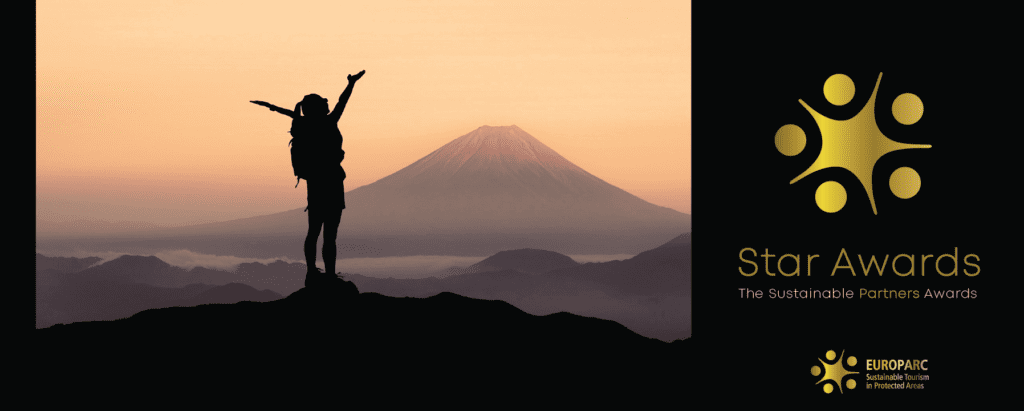
The implementation of the Charter is an opportunity to work side-by-side with local business partners and ensure that tourism can bring social and economic benefits to the local community, but also to inspire and support managers in pursuing a more sustainable approach in their business models.
The Star Awards will be awarded to the businesses that have been active in the protection of their natural and cultural heritage, who are innovative and working to reduce environmental impacts, and to those inspiring a sustainable behavior with their clients.
Registrations
Please note that if you are attending the Charter Award Ceremony, registration is needed to access the Committee of the Regions. Please register below:
Register here
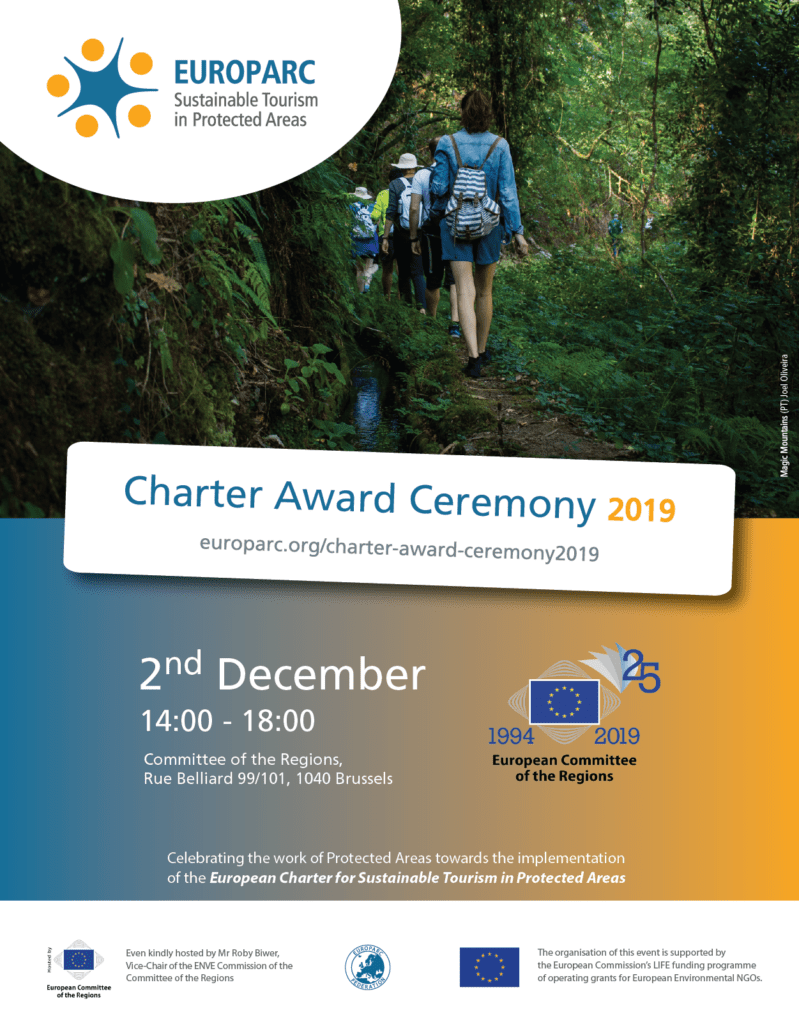
Get to know the Parks that will be awarded!
EUROPARC network counts with 106 Sustainable Destinations (soon 110!) from 16 countries. They are spread all over Europe but united by a shared vision: to make sustainable tourism a meaningful quality experience which safeguards natural and cultural values, supports local livelihoods and quality of life and is economically viable.
The 4 New Sustainable Destinations
Italy
- IT – Maremma Regional Park
- IT – Stelvio National Park
Estonia
- EE – Lahemaa National Park
Spain
- ES – Capcaleres del Ter i del Freeser Nature Park
The 12 Sustainable Destinations that will renew their commitment
France
- FR – Loire Anjou Touraine Nature Regional Park
Italy
- IT – Sibillini National Park
- IT – Torre Cerrano Marine Protected Area
- IT- Alta Murgia National Park
- IT – Pollino National Park
- IT – Colline Metallifere National Park
- IT – Appennino Tosco Emiliano National Park
Spain
- ES – Sierra Nevada National Park
- ES – Donana National Park
Portugal
- PT – Montanhas Mágicas/Magic Mountains
Lithuania
- LT – Zemaitija National Park
Finland
- FI – Pallas-Yllästunturi National Park
Take a look on the previous Charter Award Ceremonies 2017 and 2018.
The European Charter for Sustainable Tourism in Protected Areas is a methodology created by the EUROPARC Federation, with the aim of supporting protected areas to become Sustainable Destinations through an active involvement of their local stakeholders.
Get a deeper insight on the European Charter for Sustainable Tourism in Protected Areas
Healthy green paths in periurban areas: a case study from Barcelona
Source: Xarxa de Parcs Naturals, Facebook page
After many municipalities in the Province of Barcelona showed their interest to develop healthy green paths in periurban areas, the Provincial Council launched a pilot project to answer them. Beginning in four municipalities that are close to Protected Areas, the goal of the project was to promote physical activity in nature as a healthy habit for everyone, but also to design trails and therapeutic activities to specific target groups with health disorders.
The Barcelona Metropolitan area, where five million people live, is surrounded by a network of 12 Protected Areas managed by the Provincial Council of Barcelona. In 2018, the Council started a pilot project in four municipalities close to the Protected Areas, with two main goals:
- to promote outdoor physical activity as a healthy habit among people in periurban natural environment,
- to target groups with specific disorders (such as mental disease or chronic pains) with special trails and activities.
Nowadays, several municipalities have these programs underway.
Read also the original case study on healthy paths in Barcelona, and one study from Scotland, focusing on health benefits of periurban parks.
Parks and Protected Areas provide many facilities and activities to promote health in natural surroundings close to cities. There is a high demand of green environments to develop daily activities. In periurban areas, these activities become accessible for many.
Tailor-made solutions
Given the different backgrounds of municipalities, a pilot project was developed with four of them. The aim was to adapt the actions to the real demand of each municipality. In some cases new healthy paths have been established; in other places, paths were already existing and the need was to liven up with activities; and in some other cases, direct collaboration with the local health sector has been key to reach target groups with specific health needs.
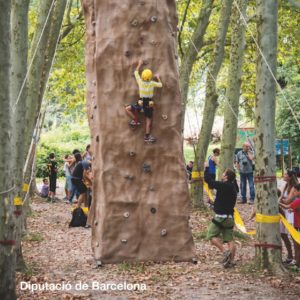
Source: Xarxa de Parcs Naturals, Facebook page
Key actions to promote healthy green paths in periurban areas:
- Identification of key local stakeholders, from politicians and experts to medical practitioners, protected area managers, NGOs and associations;
- Definition of the scenario and prioritise actions with stakeholders;
- Taking action: it can be the development of new healthy paths, or areas for healthy activities; programs to encourage more people to use them; collaboration with health practitioners to start therapies with target groups.
Concerning project partners, Protected Area managers or environment and health departments on provincial and regional level have taken part in the project. On the other hand, all stakeholders from the environment and health sectors (public, private, social) have been involved on local municipal level.
A network of healthy paths
Nowadays, several municipalities have a network of healthy paths to promote relaxing and physical activity in nature. Some of them also have a program of activities (including path guidance, therapeutic treatments for target groups etc.) supported by the Provincial Council. Some initiatives on the Catalan level have emerged through the collaboration between public and private partners from the health and environmental sectors.
There is not a unique and right solution for all places – each municipality and Protected Area has a different background and needs.
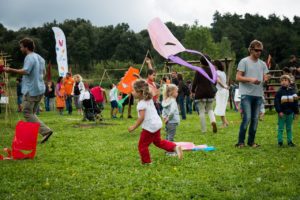
Source: Xarxa de Parcs Naturals, Facebook page
Although it has been sometimes difficult to find suitable and accessible natural places, and it cost huge efforts to keep the different partners involved due to the lack of time and resources, the project has brought an efficient network of healthy green paths and an inspiration for many others.
According to Carles Castell from the Provincial Council of Barcelona, the best recipe is to acknowledge that there is not a unique and right solution for all places – each municipality and Protected Area has a different background and needs. It is essential to identify local stakeholders, analyse the situation, define priorities and most importantly, create a strong link between the health and environmental sectors.
For more information about the project, visit the website of the Provincial Council of Barcelona or contact Carles Castell on castellpc @ diba.cat.
